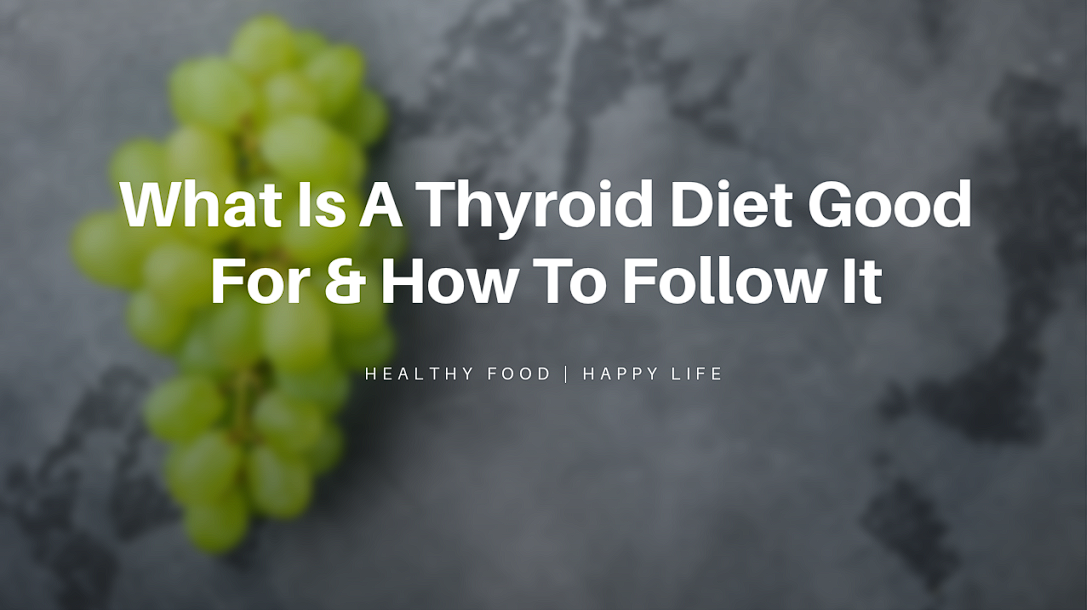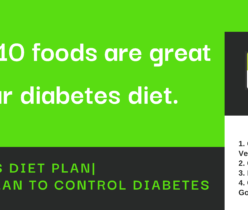Introduction
The Thyroid Diet is a healthy eating plan that can help people with thyroid problems. It’s based on foods that are known to help regulate your body’s metabolism, which is the process by which your body converts food into energy. The goal of this diet is to give you more energy and help you lose weight while still feeling full and satisfied throughout the day.
The following are some do’s and don’ts of the Thyroid Diet:
- Do eat organic, whole foods. When you eat food that hasn’t been processed or altered in any way, you’re getting more nutrients than you would otherwise.
- Don’t eat gluten. Gluten is a protein found in grains such as wheat, barley and rye that can cause inflammation in the body if someone has an intolerance for it (which many people do).
- Use healthy fats in your cooking. Healthy fats help boost your metabolism and keep you feeling full longer after meals. They also aid in brain function and hormone production—both important for thyroid health! To get more healthy fat into your diet, use olive oil for sautéing instead of vegetable oil; experiment with different types of nuts like hazelnuts or pecans; add avocado slices to salads or sandwiches; add flaxseed meal to smoothies; use coconut butter instead of peanut butter…there are so many ways to get those delicious fatty acids into our bodies!
Do eat organic, whole foods.
When it comes to the food you eat, you want to make sure that everything you’re eating and drinking is as close to its natural state as possible. This means avoiding foods with artificial ingredients and preservatives, as well as those that contain antibiotics or hormones. It also means sticking with organic fruits and vegetables whenever possible. Organic foods are grown without the use of pesticides or fertilizers, which means they’re not contaminated with harmful chemicals that could enter your body when ingested. Organic products are not genetically modified (GMO) either—and by purchasing only these types of products, you can rest assured that none of their ingredients will be genetically altered in any way.
By opting for organic produce at every opportunity and remaining vigilant about what kinds of meat or dairy products are on your grocery list each time you go shopping for groceries, the chances of developing thyroid disease symptoms due to chemical contaminants decrease significantly because there will be less contact between these substances entering your bloodstream through digestion than would normally occur if non-organic versions were consumed instead
Don’t eat gluten.
Another word to avoid is gluten. This is a protein found in wheat, barley and rye. It may cause inflammation of the small intestine and a leaky gut. People with either hypothyroidism or hyperthyroidism should avoid gluten because it can interfere with absorption of essential nutrients from food.
Do use healthy fats in your cooking.
Healthy fats are vital to a balanced diet. They are the most important type of fat for your body because they help you absorb vitamins and minerals, keep your skin and hair healthy, and control hunger. Healthy fats also lower bad cholesterol while raising good cholesterol levels in your blood.
Some foods that contain healthy fats include avocados (and avocado oil), coconut oil, olive oil and ghee (clarified butter). Trans fats should be avoided as much as possible because they can lead to heart disease or stroke. Hydrogenated oils also contain trans-fats and should not be eaten due to their negative effect on health.
Don’t eat soy.
Phytoestrogens are plant-derived chemicals that can mimic the effects of female hormones, such as estrogen. Soy is the most common food with phytoestrogens—and it’s also one of the top 5 most consumed foods in America.
Soy products are often low in calories and fat, so people tend to think they’re a good choice for weight loss diets. However, many soy products also contain high levels of goitrogenic compounds that interfere with thyroid hormone production and cause hypothyroidism (low thyroid function).
Research has linked soy consumption with increased breast cancer risk in women and men alike; if you have a family history of breast cancer or any other hormone-sensitive cancers like prostate cancer and ovarian cancer, you might want to avoid eating or drinking large amounts of soy products daily.
Consume seafood. (Limit to two portions per week.)
It is also recommended that you eat seafood twice per week. Seafood such as salmon, herring, sardines and trout are great sources of omega-3 fatty acids. Omega-3 fatty acids help to reduce inflammation and improve cardiovascular health, so they should be an important part of any thyroid diet.
In addition to encouraging a high intake of omega-3s, it’s also important to avoid consuming too much mercury in seafood — especially larger fish like tuna or swordfish.
Drink herbal tea, such as ginger or peppermint.
Ginger and peppermint are herbal teas that can help with digestion. Ginger has been shown to alleviate nausea, while peppermint is a good anti-inflammatory.
Both herbs also have antispasmodic properties, meaning they relax the muscles in your digestive tract and decrease stomach cramping and gas. Ginger is also known for its ability to settle an upset stomach or nausea, making it a great addition to any meal plan that includes foods rich in FODMAPs (fermentable oligosaccharides, disaccharides, monosaccharides and polyols).
Do drink two to three liters of filtered water every day.
Drinking two to three liters of filtered water every day is essential for a healthy thyroid. It helps flush toxins from the body, and it’s important to stay hydrated at all times. You should drink more water if you are exercising, but make sure not to overdo it otherwise—if you drink too much water in one sitting, it can cause hyponatremia (low sodium levels), which can be harmful for your thyroid health.
Eat plenty of cruciferous vegetables—broccoli, cauliflower, cabbage, kale, Brussels sprouts and more.
- Eat plenty of cruciferous vegetables—broccoli, cauliflower, cabbage, kale, Brussels sprouts and more. These foods are rich in vitamins C and E as well as folate (a B vitamin) that help your body use iodine.
- Avoid excess salt (sodium). Excess sodium makes a thyroid condition worse by causing too much fluid retention in the body. The thyroid needs water to function properly so it’s important not to dehydrate yourself while trying to lose weight by cutting out food groups like carbs or sugar!
- Drink plenty of water every day—at least eight glasses per day will help keep you hydrated while also flushing toxins from your system where they can do less damage!
Many people with thyroid problems have to be careful about what they eat.
Many people with thyroid problems have to be careful about what they eat. The food you eat can affect your health and may even help control your condition.
If you are taking medication for a thyroid condition, check with your doctor before making any changes in your diet or exercise habits.
Some foods must be limited because of their potentially harmful effect on the thyroid gland. These include:
- Iodine-rich foods, such as kelp, shellfish (such as shrimp and lobster), iodized salt, soy sauce and other sources of dietary iodine should be avoided by people who have hyperthyroidism caused by Graves’ disease or overactive thyroid syndrome (hyperthyroidism). If these foods are eaten in large quantities, they may cause symptoms such as palpitations (feeling that their heart is beating too fast) or shortness of breath. In addition an overactive thyroid gland cannot handle excess amounts of iodine so it makes sense not to take more than what is needed from food sources alone!
Conclusion
If you have thyroid problems, it’s important to eat a balanced diet that includes all the nutrients your body needs. Eating healthily will help you stay fit and feel great!



